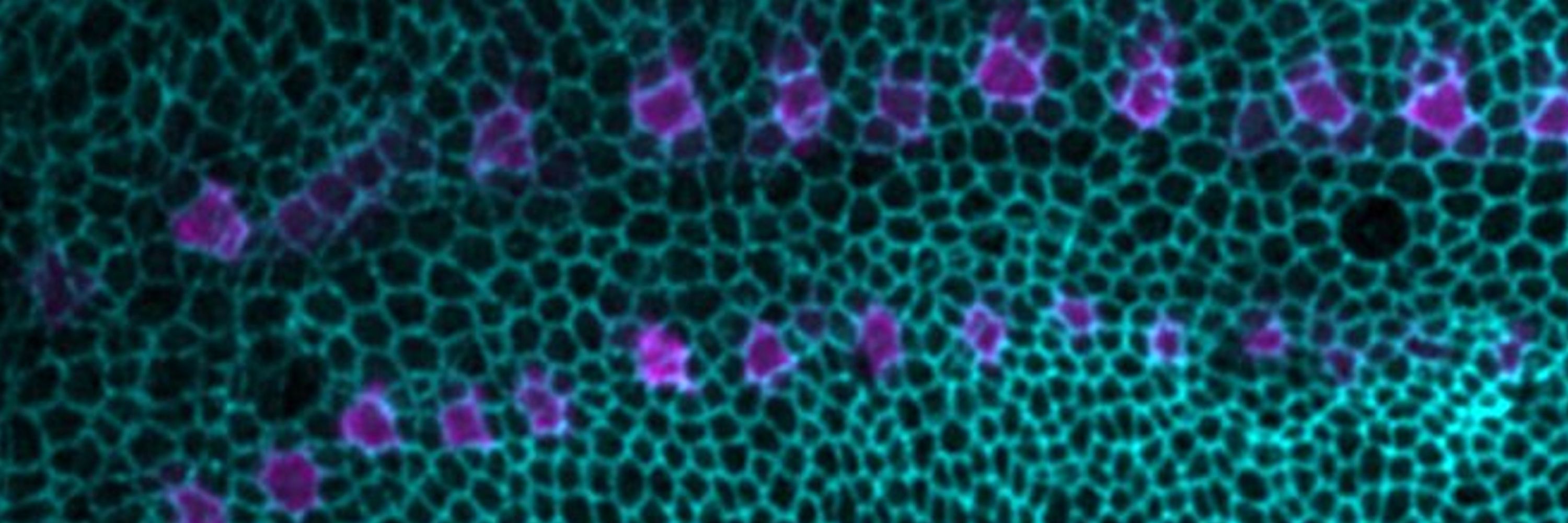
⏰ Check our impressive cohort of international invited speakers and submit your abstract (by 22 Feb or 8 Mar 2026) at www.isocmb.org
#Mechanobiology #ISMB2026 #Biophysics #CellMechanics
⏰ Check our impressive cohort of international invited speakers and submit your abstract (by 22 Feb or 8 Mar 2026) at www.isocmb.org
#Mechanobiology #ISMB2026 #Biophysics #CellMechanics
Breaking isn’t always a bad thing! Think of birth, seed release...
We highlight how living tissue not only tolerates fractures but actively fracture to grow, shape, reproduce, or adapt – across species and scales.

Breaking isn’t always a bad thing! Think of birth, seed release...
We highlight how living tissue not only tolerates fractures but actively fracture to grow, shape, reproduce, or adapt – across species and scales.
Details on our website👇
www.ucl.ac.uk/mathematical...

Details on our website👇
www.ucl.ac.uk/mathematical...
More info here:
https://www.embo.org/funding/fellowships-grants-and-career-support/young-investigator-programme/
#LifeSciences #research #funding

More info here:
https://www.embo.org/funding/fellowships-grants-and-career-support/young-investigator-programme/
#LifeSciences #research #funding

A few points and new information that bioscientists may find interesting...
A 🧵
A few points and new information that bioscientists may find interesting...
A 🧵
Next application deadline is March 31st!
www.rms.org.uk/community/ne...

Next application deadline is March 31st!
www.rms.org.uk/community/ne...
@calm-stp.bsky.social is hiring a Data & Systems Steward! 🧬
🔹Manage #bioimage data & #OMERO admin
🔹Automate via #Python/#Bash
🔹Support #FAIR principles
🔹Work closely with @crick-ia-team.bsky.social
⏰ Deadline: 08 Feb 2026
Apply: www.crick.ac.uk/careers-stud...

@calm-stp.bsky.social is hiring a Data & Systems Steward! 🧬
🔹Manage #bioimage data & #OMERO admin
🔹Automate via #Python/#Bash
🔹Support #FAIR principles
🔹Work closely with @crick-ia-team.bsky.social
⏰ Deadline: 08 Feb 2026
Apply: www.crick.ac.uk/careers-stud...
embl.wd103.myworkdayjobs.com/EMBL/job/Hin...

embl.wd103.myworkdayjobs.com/EMBL/job/Hin...
If you can't make it, Niko is writing a blog series about how to write your research software in a way that it gets adopted by the wider community.
Read more about it on our website: neuroinformatics.dev/blog/trusted...
If you can't make it, Niko is writing a blog series about how to write your research software in a way that it gets adopted by the wider community.
Read more about it on our website: neuroinformatics.dev/blog/trusted...
The course is open to students and staff at @crick.ac.uk and partner universities (@ucl.ac.uk, @kingscollegelondon.bsky.social and @imperialcollegeldn.bsky.social)
The course is open to students and staff at @crick.ac.uk and partner universities (@ucl.ac.uk, @kingscollegelondon.bsky.social and @imperialcollegeldn.bsky.social)
www.eurobioimaging.eu/news/exchang...

www.eurobioimaging.eu/news/exchang...
Find out more at www.software.ac.uk/news/rsmf-ro...

Find out more at www.software.ac.uk/news/rsmf-ro...
@manuelthery.bsky.social and the #CytoMorphoLab reimagined the Musée D’Orsay. Accompanied by an orchestra and poet, their images transported us into the cellular universe. I remembered why I am a cell biologist. All of this is in us. Wow!

@manuelthery.bsky.social and the #CytoMorphoLab reimagined the Musée D’Orsay. Accompanied by an orchestra and poet, their images transported us into the cellular universe. I remembered why I am a cell biologist. All of this is in us. Wow!
biologists.com/grants/trave...

biologists.com/grants/trave...
Details 👉 www.findaphd.com/phds/project...
Please share with interested students!
#PhD #PhDposition #PhDSky #AcademicSky #computationalphysics 🧪⚛️

Details 👉 www.findaphd.com/phds/project...
Please share with interested students!
#PhD #PhDposition #PhDSky #AcademicSky #computationalphysics 🧪⚛️
You can read about Giulia's work on how tissues withstand mechanical stress here:
bscb.org/postdoctoral...

www.biorxiv.org/content/10.6...

www.biorxiv.org/content/10.6...
🗓️ Thurs, Jan 22
🎙️ Opening talks:
🧬Guy Tanentzapf (UBC)
— How cell adhesion molecules wire into the cytoskeleton
🌀Juan Manuel Gomez Elliff (EMBL)
@gomezjm-devmech.bsky.social
— Mapping tissue mechanics with Brillouin microscopy

🗓️ Thurs, Jan 22
🎙️ Opening talks:
🧬Guy Tanentzapf (UBC)
— How cell adhesion molecules wire into the cytoskeleton
🌀Juan Manuel Gomez Elliff (EMBL)
@gomezjm-devmech.bsky.social
— Mapping tissue mechanics with Brillouin microscopy
We have lived alongside cows for nearly 10,000 years.
We breed them and exploit them
It is now, only now, that we have discovered THEY CAN USE TOOLS
Here I describe our study
(paper) www.sciencedirect.com/science/arti... in @currentbiology.bsky.social
with @auersperga.bsky.social


We have lived alongside cows for nearly 10,000 years.
We breed them and exploit them
It is now, only now, that we have discovered THEY CAN USE TOOLS
Here I describe our study
(paper) www.sciencedirect.com/science/arti... in @currentbiology.bsky.social
with @auersperga.bsky.social

Applications are open to existing BSCB postdoc members. See our website for further details.
Apply by 31st Jan
bscb.org/call-for-app...
Applications are open to existing BSCB postdoc members. See our website for further details.
Apply by 31st Jan
bscb.org/call-for-app...

Spread the word!
Spread the word!
Check out the reasons that #CBIAS2026 should be in your calendar⤵️
focalplane.biologists.com/2026/01/12/c...


